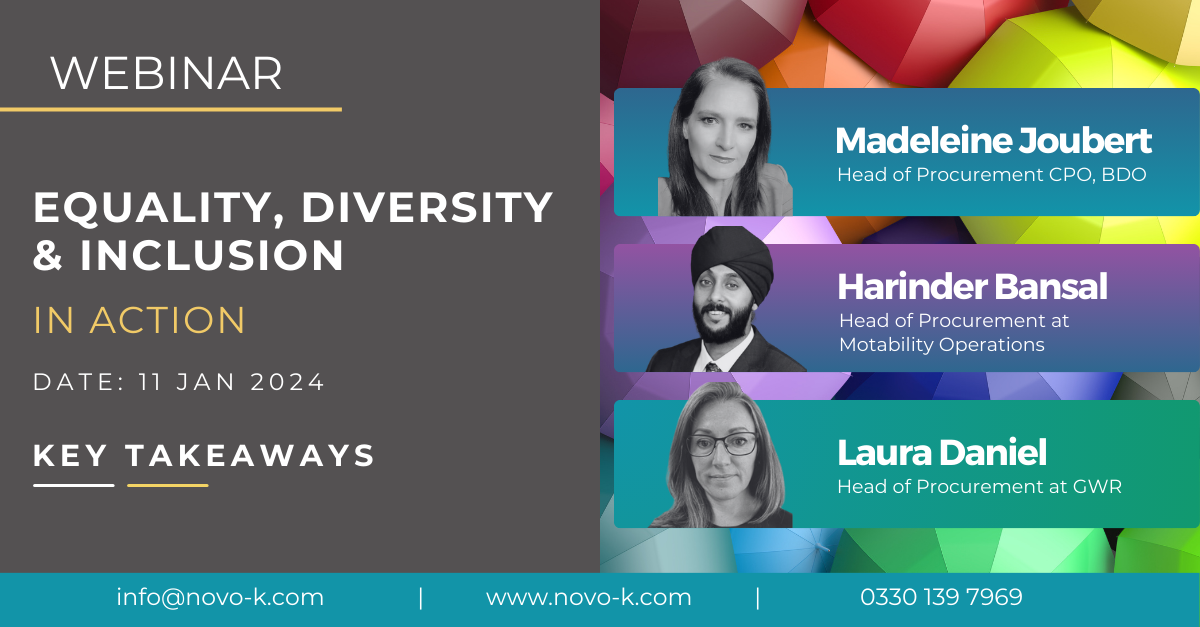Procurement is no longer just about numbers, contracts and negotiations, it’s about strategy, leadership and breaking new ground. Women in procurement are shaping industries, driving innovation and redefining what it means to be a leader in a traditionally male-dominated space. That’s exactly why I created Levelling Up – A podcast about Women in Procurement! A platform to share the stories of the women who are pushing the boundaries of what is possible in procurement.
Through conversations with incredible women from various industries, this podcast uncovers the realities, challenges and triumphs of procurement professionals. Whether it’s navigating complex pharmaceutical supply chains, leading sustainability initiatives, or leveraging technology for procurement transformation, each episode brings powerful insights from those who have paved their way in the field.
One of the recurring themes in these conversations is strength. Take Sarah Allison, for example, who shared how precision and compliance define pharmaceutical procurement, where balancing regulatory demands with supply chain efficiency is a daily challenge. In a different but equally demanding space. Claire Humphreys highlighted the evolving world of print procurement, emphasising adaptability in an industry undergoing digital transformation. Meanwhile, Amy Myres spoke about the housing sector, where procurement plays a critical role in community-driven projects and sustainable building initiatives.
Savita Mace brought a fresh perspective in procurement, discussing the importance of navigating uncertainty in global supply chains. She highlighted how staying agile and proactive is key to mitigating risks and ensuring smooth procurement operations. Similarly, Natasha Brown underscored the significance of supplier diversity and inclusion, emphasising how procurement professionals have the power to drive equity and social impact through responsible sourcing.
Another key takeaway is the importance of relationships. Rebecca Howard reinforced that procurement is not just about transactions, it’s about partnerships. Trust, collaboration and ethical sourcing are essential to creating long-term success. Karen Julien also explored this theme, sharing how strategic alliances and cross-functional teamwork enhance procurement’s impact across business functions.
Sustainability and innovation also took centre stage. Kate Jay made it clear that responsible sourcing isn’t just a trend, it is a necessity. Her insights into integrating sustainability into procurement strategies serve as a guide for professionals looking to make ethical decisions without sacrificing efficiency. Meanwhile, Jenna Wallis addressed the role of technology, from AI-driven analytics to blockchain transparency, in shaping the future of procurement. Staying ahead of digital advancements is no longer optional, it is essential for success.
Leadership and mentorship are crucial in this journey. Paula Merrigan’s perspective on mentorship as a game-changer resonated strongly having the right guidance can open doors and shape careers. Natalia Pickett reinforced this with her insights on procurement leadership, highlighting the vision and influence needed to drive meaningful change. As Elizabeth Matthews pointed out, the future of procurement will continue to evolve with ESG (Environmental, Social and Governance) considerations taking a central role.
Hosting these conversations has been both inspiring and eye-opening. Levelling Up isn’t just about sharing stories, it is about fostering a community that supports, uplifts and empowers women in procurement. These leaders prove that when women support each other, challenge norms and embrace leadership, the entire industry benefits.
For those looking to grow in procurement, whether you are starting out or striving for the next level, these stories offer invaluable lessons. Through resilience, relationships, innovation and leadership, we can continue breaking barriers and building a future where women thrive in procurement.
It has been truly humbling to see Levelling Up recognised on James Meads’ list of Top 50 Procurement Podcasts. This acknowledgment is a testament to the incredible women who have shared their journeys with us and the powerful conversations we have had along the way. Being featured among such impactful voices in procurement reinforces our commitment to championing diversity, amplifying female leadership and continuing to break barriers in this ever-evolving field.
Thank you to everyone who’s been part of this journey, we are just getting started.


.png)



